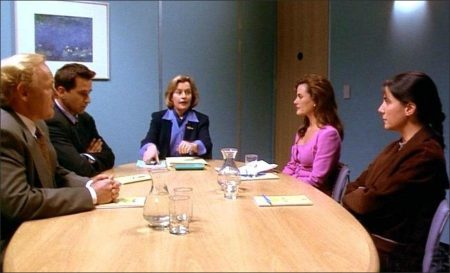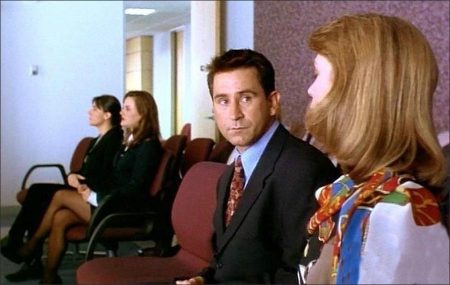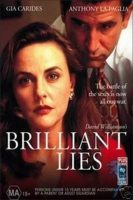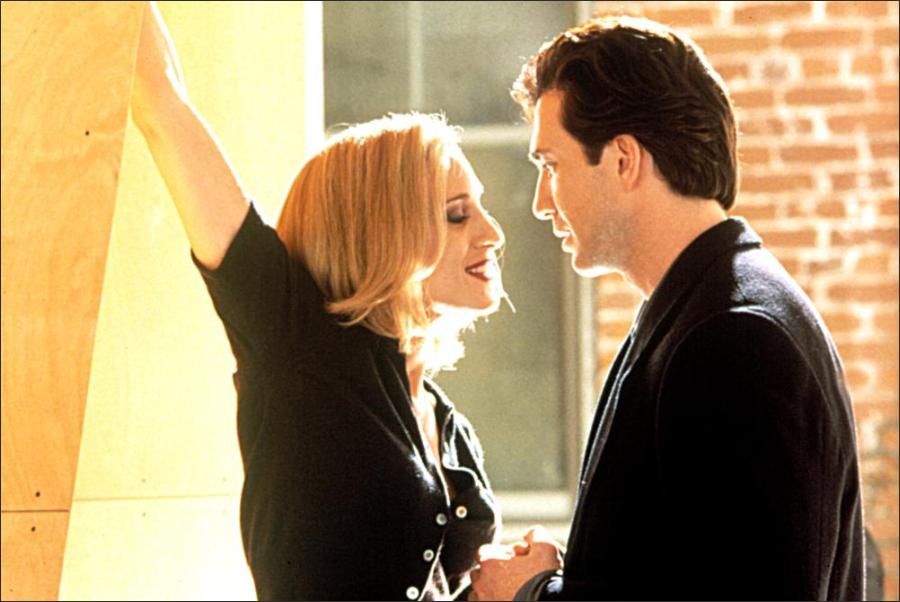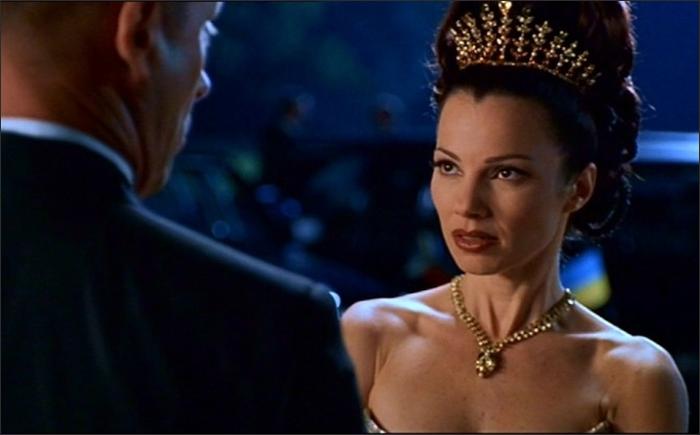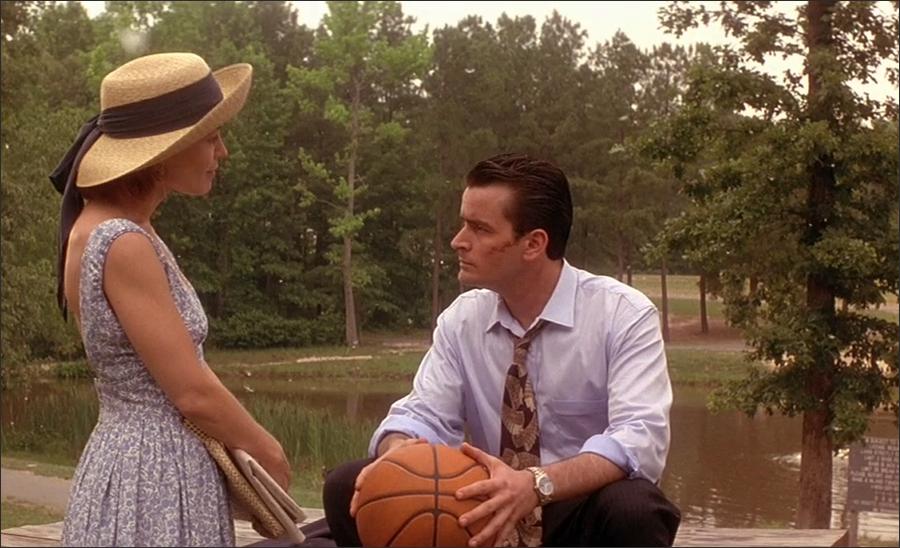Taglines: The battle of the sexes is now all out war. To survive, you must tell Brilliant Lies.
Brilliant Lies movie storyline. Though somewhat restricted in scope, “Brilliant Lies” works powerfully on more than one level and contains enough meaty material to provoke plenty of pros and cons. With strong performances toplined by the Carides sisters, plus Anthony LaPaglia in one of his best roles for some time, pic should perform solidly in niche outlets and possibly find wider exposure.
Director Richard Franklin, who made genre thrillers like “Psycho 2” and “F/X 2” in the U.S., seems to be establishing himself now as Australia’s premier exponent of transferring top plays to the screen. He has followed 1994’s “Hotel Sorrento” with this intelligent and well-paced version of a recent stage success by David Williamson, whose work has been filmed by Bruce Beresford (“Don’s Party ,””The Club”) and by Carl Schultz (“Traveling North”). Result, though inevitably dialogue-based, is a riveting comedy-drama on the theme of sexual harassment.
Williamson’s contention, strongly conveyed in the film, is that everyone lies about something. As one character notes, “To survive in the ’90s, you’ve got to be lucky, rich or a brilliant liar.”
Pic centers on an attractive young woman who has brought an official complaint of sexual harassment against her former employer, who strongly denies the charge: Question is who (if anyone) is telling the truth about the incident. As the incident itself is glimpsed, via brief, teasing flashbacks, it’s seen from the two different perspectives (shades of “Rashomon”).
Susy Connor (Gia Carides) has complained to the Anti-Discrimination Tribunal (an Australian government body) that one night when she was working late, her boss, Gary Fitzgerald (LaPaglia), a married man, clutched her breasts and exposed himself to her. Susy tells Marion (Catherine Wilkin), the official conciliator, that her sister Katie (Zoe Carides) can support her story, as Susy told her everything that occurred. Gary’s witness is Vince (Neil Melville), his partner in the insurance brokerage firm.
The trouble is that Susy had, in fact, never told Katie about the incident, though she now expects her to lie and confirm that she did. Similarly, Vince strongly suspects Gary is guilty as charged. Under pressure, both Katie and Vince support Susy and Gary, respectively, though without much conviction.
The audience remains uncertain about whom to believe, since both sides have plausible arguments. Gary was a known womanizer. Susy usually dresses provocatively, and privately makes no bones about her active sex life; Gary’s story, that she encouraged him, could be true. But, as he points out, in these days of political correctness, he has little chance of being believed.
While the arguments continue, other characters come into focus. Katie, who is gay, reveals that, during puberty, her father molested her, using the same words Susy now claims Gary spoke suggestively to her.
Susy, too, it seems, was molested by their father, now a widower in desperate need of an expensive heart-bypass operation no one in the family can afford. If Susy wins the compensation of $ 40,000 she seeks from Gary, will she pay for surgery for the father she despises?
Intelligently scripted and developed, “Brilliant Lies” is a witty, perceptive contribution to the sexual debate that pulls no punches. In one scene, Franklin has Susy eagerly watching a TV broadcast of Billy Wilder’s “The Apartment,” in which lecherous boss Fred MacMurray seduces employee Shirley MacLaine — a potent reminder that the sexual harassment theme is far from new.
In one of those rare films in which real-life sisters play onscreen sisters, the Carideses acquit themselves wonderfully. As the forthright, greedy Susy, Gia gives her best performance to date, while Zoe makes the most of Katie’s strengths as a feminist.
LaPaglia (husband of Gia Carides) perfectly captures the nuances of the thoughtlessly macho Gary. In supporting roles, veteran Ray Barrett has a field day reprising his stage role as the boozy old father, Wilkin is outstanding as the patient conciliator, and Michael Veitch is touching as the sisters’ wimpy brother, who’s embraced religion and is at odds with his family.
Cinematographer Geoff Burton is at his usual high standard and, together with Franklin, has come up with fresh ideas for flashbacks that are seamlessly integrated into the drama. Handsomely mounted pic gets off to a bright start with the use of cartoons from Esquire magazine to accompany the opening credits.
Brilliant Lies is a 1996 Australian drama film produced by Bayside Pictures and Beyond Films. It stars Gia Carides and Anthony LaPaglia. It was directed by Richard Franklin and produced by Sue Farrelly, Kim McKillop and Richard Franklin. It was written by Peter Fitzpatrick and Richard Franklin, based on a play by David Williamson.
Nerida Tyson-Chew composed the music score, the second time she had composed for a film directed by Richard Franklin (after Hotel Sorrento). The film was an adaptation of David Williamson’s play of the same name, published by Currency Press in 1993. The theme song is included on Kate Ceberano’s 1996 album Blue Box.
Brilliant Lies (1997)
Directed by: Richard Franklin
Starring: Gia Carides, Anthony LaPaglia, Zoe Carides, Ray Barrett, Catherine Wilkin, Neil Melville, Jennifer Jarman-Walker, Beverley Dunn, Brad Lindsay
Screenplay by: Peter Fitzpatrick, Richard Franklin, David Williamson
Production Design by: Tracy Watt
Cinematography by: Geoff Burton
Film Editing by: David Pulbrook
Costume Design by: Roger Kirk
Set Decoration by: Jill Eden
Art Direction by: Brian Alexander
Music by: Nerida Tyson-Chew
MPAA Rating: R for sexual content and language.
Distributed by: Castle Hill Enterprises
Release Date: July 11, 1997
Hits: 121
